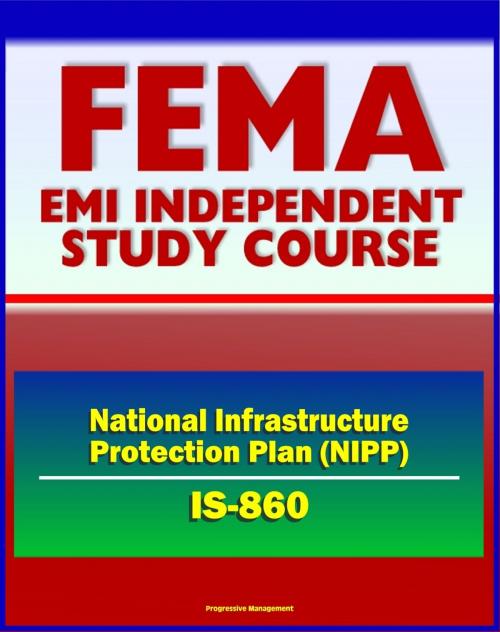21st Century FEMA Study Course: The National Infrastructure Protection Plan (NIPP) An Introduction (IS-860.a) - CIKR, Terrorism, Cybersecurity, Components of Risk
Nonfiction, Social & Cultural Studies, Political Science| Author: | Progressive Management | ISBN: | 9781466051669 |
| Publisher: | Progressive Management | Publication: | July 16, 2011 |
| Imprint: | Smashwords Edition | Language: | English |
| Author: | Progressive Management |
| ISBN: | 9781466051669 |
| Publisher: | Progressive Management |
| Publication: | July 16, 2011 |
| Imprint: | Smashwords Edition |
| Language: | English |
This Federal Emergency Management Agency (FEMA) independent training course manual from the Emergency Management Institute (EMI) presents an overview of the National Infrastructure Protection Plan (NIPP).
Protecting and ensuring the resiliency of the critical infrastructure and key resources (CIKR) of the United States is essential to the Nation’s security, public health and safety, economic vitality, and way of life.
The purpose of this course is to present an overview of the National Infrastructure Protection Plan (NIPP). The NIPP provides the unifying structure for the integration of existing and future CIKR protection and resiliency efforts into a single national program. This course has been updated to align with the NIPP that was released in 2009.
Course Objectives
Explain the importance of protecting critical infrastructure and key resources.
Identify the relevant authorities and roles for CIKR protection efforts.
Describe the NIPP unifying structure for the integration of CIKR protection efforts, including:
Sector security partnership model.
Risk management framework.
Information sharing process
The course is intended for DHS and other Federal staff responsible for implementing the NIPP, and Tribal, State, local and private sector emergency management professionals. The course is also designed to teach potential security partners about the benefits of participating in the NIPP.
Topics covered include: Critical Infrastructure protection; authorities and roles; managing risk, Homeland Security Presidential Directive (HSPD-7); terrorism, cybersecurity; physical, cyber, human elements; components of risk including consequence, vulnerability, threat.
This is a privately authored news service and educational publication of Progressive Management.
This Federal Emergency Management Agency (FEMA) independent training course manual from the Emergency Management Institute (EMI) presents an overview of the National Infrastructure Protection Plan (NIPP).
Protecting and ensuring the resiliency of the critical infrastructure and key resources (CIKR) of the United States is essential to the Nation’s security, public health and safety, economic vitality, and way of life.
The purpose of this course is to present an overview of the National Infrastructure Protection Plan (NIPP). The NIPP provides the unifying structure for the integration of existing and future CIKR protection and resiliency efforts into a single national program. This course has been updated to align with the NIPP that was released in 2009.
Course Objectives
Explain the importance of protecting critical infrastructure and key resources.
Identify the relevant authorities and roles for CIKR protection efforts.
Describe the NIPP unifying structure for the integration of CIKR protection efforts, including:
Sector security partnership model.
Risk management framework.
Information sharing process
The course is intended for DHS and other Federal staff responsible for implementing the NIPP, and Tribal, State, local and private sector emergency management professionals. The course is also designed to teach potential security partners about the benefits of participating in the NIPP.
Topics covered include: Critical Infrastructure protection; authorities and roles; managing risk, Homeland Security Presidential Directive (HSPD-7); terrorism, cybersecurity; physical, cyber, human elements; components of risk including consequence, vulnerability, threat.
This is a privately authored news service and educational publication of Progressive Management.















